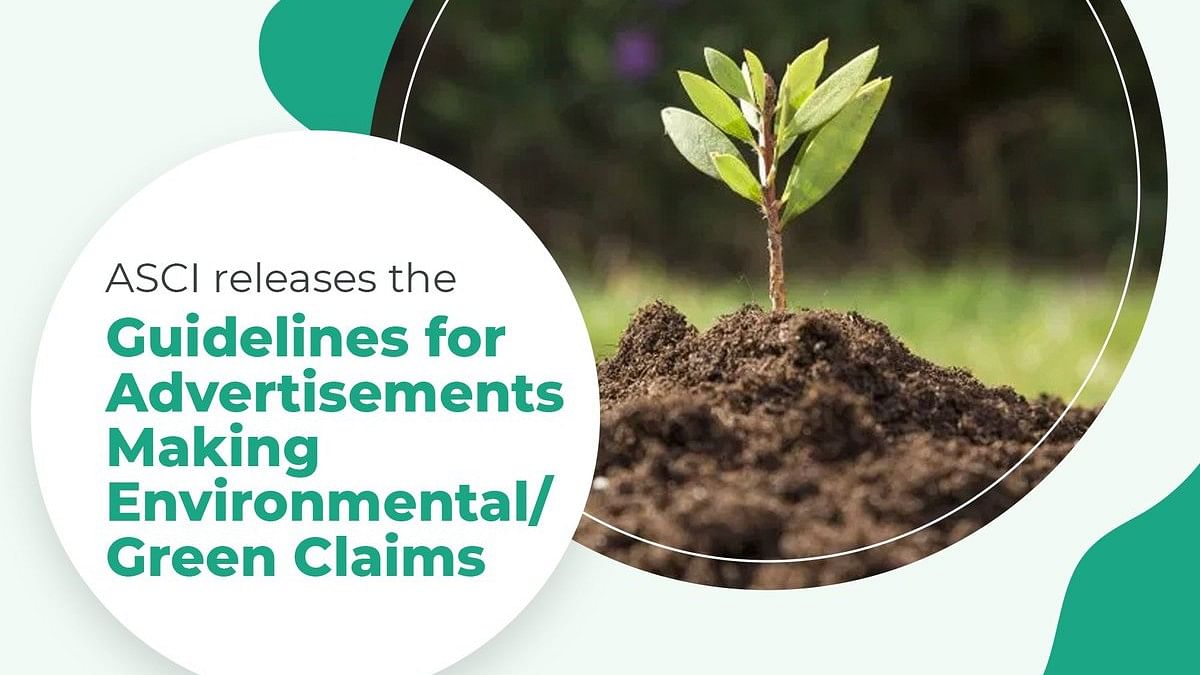
ASCI guidelines against greenwashing.
Credit: X/@ascionline
Mumbai: The Advertising Standards Council of India (ASCI) has issued its guidelines to prevent false pro-environment claims, also known as greenwashing, that has been seen across sectors.
The 'Guidelines for Advertisements Making Environmental/ Green Claims' have been in the public domain for consultation since November 16, 2023, and were approved in the recent Board of Governors meeting.
Effective February 15, 2024, these guidelines aim to ensure that environmental claims made by advertisers are reliable, verifiable, and transparent.
In a statement, Manisha Kapoor, CEO and Secretary-General, ASCI said: “Consumers today are exercising their preferences for green products, and in many cases, pay a premium for them. It is necessary that consumers have the correct information to make informed choices to support green products. It is also important that organizations that genuinely provide greener products are able to communicate this clearly to consumers.”
According to Kapoor, the Maharashtra government too has expressed their concern on greenwashing or false green claims, and said they believe that these guidelines are a significant step towards promoting transparency and accountability in environmental/ green claims made in advertising.
Consumers are increasingly demanding products and services which minimise harm to, or have a positive effect on, the environment. As a result of a proliferation of products, services and businesses which claim to meet that demand— it is imperative for such claims to be reliable and verifiable.
Greenwashing refers to unsubstantiated, false, deceptive, or misleading environmental claims about products, services, processes, brands or operations as a whole.
It is often seen that products make such broad claims although only a very small component or part of the product is green.
The ASCI guidelines require advertisements to make specific claims limited to the part of the product or service that actually has the environmental benefit. Advertisements must not claim an environmental benefit that results from a legal obligation if competing products are subject to the same requirements.
The guidelines also require that all seals and certifications must be from accredited organisations. Future promises of being green cannot be made unless there are some specific plans to achieve those claims.
Greenwashing violates Chapter I of the ASCI Code on misleading advertisements. In order not to breach Chapter I of the ASCI code, advertisements must adhere to the following guidelines.